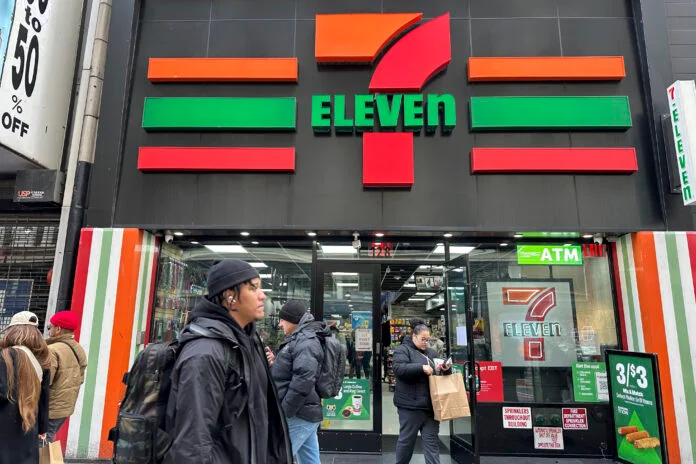Staff Reporter
Seven & I Holdings, the parent company of 7-Eleven convenience stores, announced plans to tighten its budget and review its supply chain as U.S. consumers face the effects of tariffs.
Incoming CEO Stephen Dacus shared his outlook on the retail landscape, stating, “I assume we will encounter a more challenging environment.”
The tariffs, enacted and proposed by former President Donald Trump as part of a broader trade strategy, are likely to drive prices up significantly, creating tough conditions for retailers.
Consumer confidence in the U.S. declined in April, with inflation expectations reaching their highest level since 1981.
Dacus, who is set to take over next month, noted that the primary impact of these tariffs will be seen in consumer behavior rather than directly affecting suppliers.
“In this situation, we must closely examine our supply chain and control our costs effectively,” he explained.
As Seven & I navigates a $47 billion takeover bid from Canada’s Alimentation Couche-Tard, the company is focused on enhancing its corporate value, particularly within its U.S. division, which operates over 12,000 convenience stores. North American revenue constitutes 73% of Seven & I’s total sales.
The company still aims to list its North American subsidiary in late 2026, though Dacus indicated that this timeline may shift based on market conditions.
“The initial public offering will provide us with the financial flexibility to invest more aggressively in our stores,” he said, emphasizing plans to increase the number of locations featuring quick-service restaurants, which tend to be more profitable.
In addition to these strategies, Seven & I has sold its superstore unit to Bain Capital and launched a share buyback program valued at around 2 trillion yen ($14 billion) through fiscal year 2030.
While engaging with its Canadian suitor, the company acknowledges the challenge of securing approval from U.S. antitrust regulators.
“My appointment as CEO was unrelated to the takeover offer,” Dacus stated. “We don’t discuss Couche-Tard in management meetings because there’s nothing we can do about it,” adding that the special committee handles that matter.

